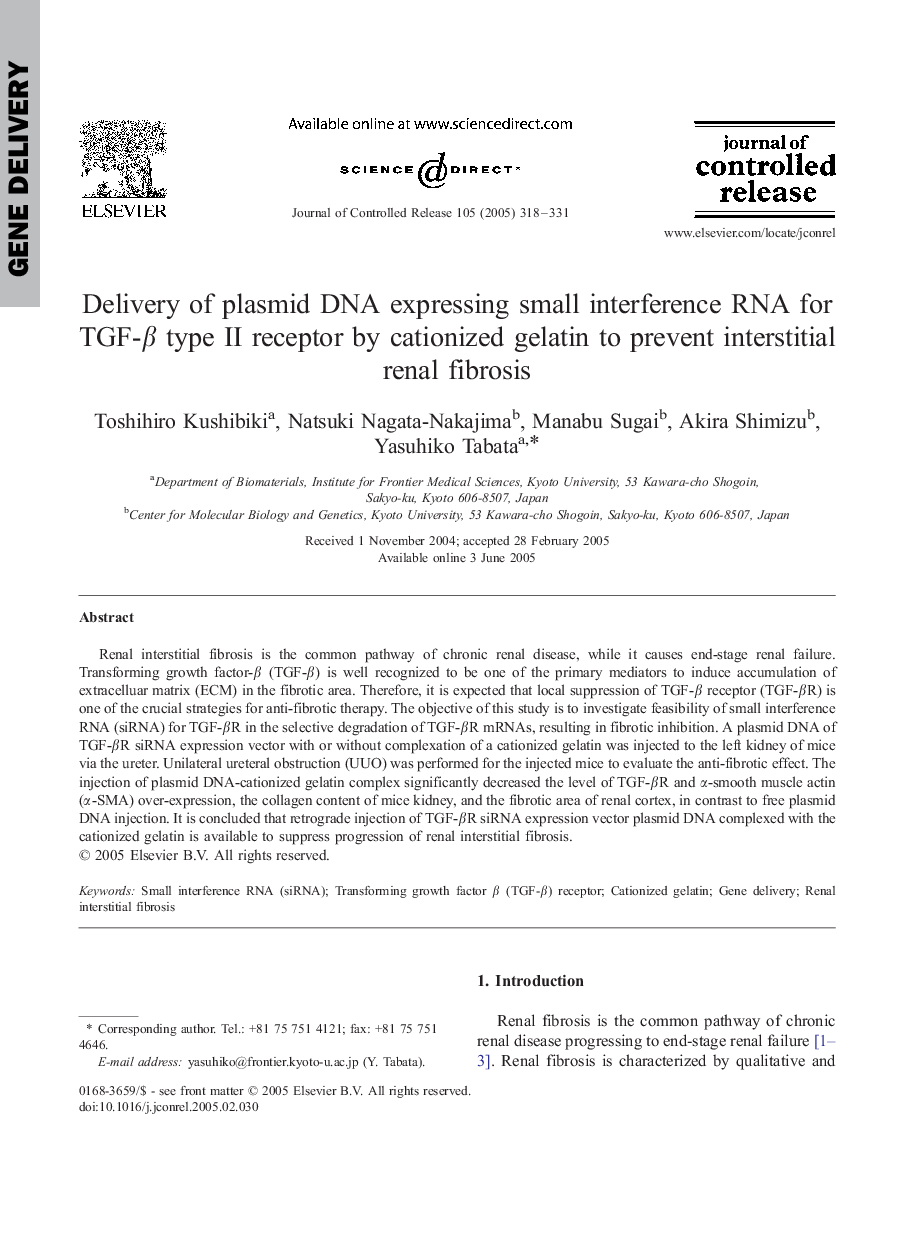| Article ID | Journal | Published Year | Pages | File Type |
|---|---|---|---|---|
| 10613559 | Journal of Controlled Release | 2005 | 14 Pages |
Abstract
Renal interstitial fibrosis is the common pathway of chronic renal disease, while it causes end-stage renal failure. Transforming growth factor-β (TGF-β) is well recognized to be one of the primary mediators to induce accumulation of extracelluar matrix (ECM) in the fibrotic area. Therefore, it is expected that local suppression of TGF-β receptor (TGF-βR) is one of the crucial strategies for anti-fibrotic therapy. The objective of this study is to investigate feasibility of small interference RNA (siRNA) for TGF-βR in the selective degradation of TGF-βR mRNAs, resulting in fibrotic inhibition. A plasmid DNA of TGF-βR siRNA expression vector with or without complexation of a cationized gelatin was injected to the left kidney of mice via the ureter. Unilateral ureteral obstruction (UUO) was performed for the injected mice to evaluate the anti-fibrotic effect. The injection of plasmid DNA-cationized gelatin complex significantly decreased the level of TGF-βR and α-smooth muscle actin (α-SMA) over-expression, the collagen content of mice kidney, and the fibrotic area of renal cortex, in contrast to free plasmid DNA injection. It is concluded that retrograde injection of TGF-βR siRNA expression vector plasmid DNA complexed with the cationized gelatin is available to suppress progression of renal interstitial fibrosis.
Related Topics
Physical Sciences and Engineering
Materials Science
Biomaterials
Authors
Toshihiro Kushibiki, Natsuki Nagata-Nakajima, Manabu Sugai, Akira Shimizu, Yasuhiko Tabata,
